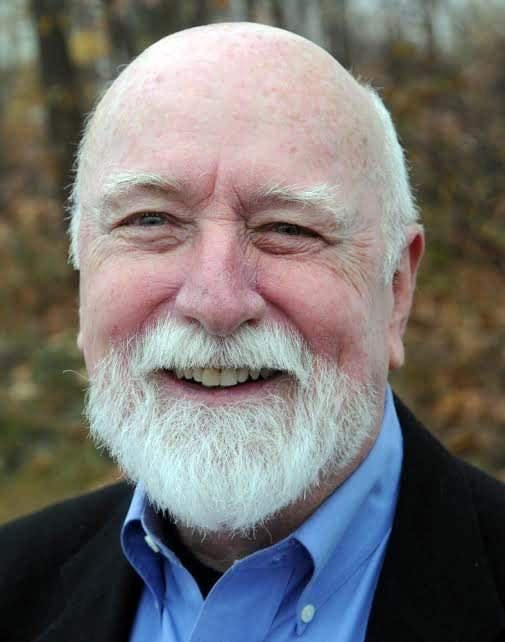The Observer: The British prime minister shuffle
- Oops!Something went wrong.Please try again later.
- Oops!Something went wrong.Please try again later.
- Oops!Something went wrong.Please try again later.
- Oops!Something went wrong.Please try again later.
- Oops!Something went wrong.Please try again later.
America’s peaceful transfer of power has been a regular and predictable event since 1787 when John Adams became the second president of the United States. That now long-standing tradition, in serious jeopardy last year, was continued when Joe Biden was sworn in as president.
In Britain, by contrast, a prime minister’s term of office is not etched in stone. PMs’ terms of office can continue as long as they retain the confidence of a majority of their fellow MPs. As a result, prime ministerial terms can be lengthy — Margaret Thatcher was PM for almost twelve years — or brief like Boris Johnson’s (under three years). And any one’s time in office can end suddenly, without requiring a general election.

This latest change of leadership paralleled the script laid down when Johnson’s predecessor Theresa May lost her grip on power in 2019. She, along with her predecessor (David Cameron), and her successor all came a cropper over the same issue — Brexit. Johnson’s departure, however, was accelerated by an array of habitual ethical lapses.
Just a month before his resignation, Johnson had survived a Conservative Party “No Confidence” vote but his hold on the office crumpled like a stale crumpet following the resignations of two prominent members of his cabinet (each a potential successor). Eventually, a cascade of more than 50 resignations by members of his government sealed his fate.
The new PM will be selected from among the surviving candidates.
The Observer: York Town Manager Steve Burns has a lot to be proud of
No public campaign or popular vote; just a power struggle within the Conservative Party. Whoever can win the leadership of the party will become the next PM — given the Queen’s pleasure. The announcement is expected on September 5. How different a parliamentary system of governance is from the American electoral system!
This struggle for UK leadership will be conducted off stage.
Betting shops across Britain are setting odds for different candidates who would succeed Boris Johnson. Reading various news outlets to identify the leading lights, the same 15 names appear. All Tory politicians who may want to be the country’s 78th prime minister.
The Observer: Suppose we held an election, and nobody came
Each candidate is an elected member of the 650-seat British parliament. A third of the frontrunners are women so it is possible, especially given the pathbreaking terms of Margaret Thatcher and Theresa May (the only women ever to have held the office), that the next PM will be a woman.
Social position, however, may be a better predictor than gender.
Five of the last seven PMs attended Oxford University (including Thatcher and May). Among the fifteen names currently circulating, five are Oxford grads and four others attended equally grand Cambridge University. If I were a betting man, I’d put my money on one of the “OxBridge" contingent.
Another interesting variable is ethnic background.
Surprisingly, eight of the 15 (thus, most) are the children of immigrants. One was born abroad (in Baghdad), while the parents of the rest emigrated from Ghana, India, Kenya, Nigeria, Pakistan or elsewhere. There are more first-generation children of immigrants among the fifteen contenders than there are native Britons. Of course, from a Labor point of view there are no good choices among the 15 Tories. Most would stay the course set by Johnson.
Could a person of color become the next prime minister; the Barack Obama of Great Britain? It’s possible. Britain today is not the country it was when Winston Churchill was PM (1940-45 and from 1951-55) or even when Margaret Thatcher was (1979-1990). London is the wide world writ small and compact.
Greater London is the most ethnically diverse region in England and Wales. In 2021, 40.2% of Londoners were identified as “Asian, Black, Mixed or Other.” It also had the smallest percentage of white people in Britain — 44.9%. But the rest of the UK is not like London.
While a prime minister of color in 2022 is not out of the question, I think it a long shot. The next PM will not be elected by the people of London but by the 365 Conservative MPs in Westminster. You can expect these politicians to select a British-born, non-colonial, white, Oxford University graduate to form Her Majesty’s next government.
Here in the United States, we all know when the next president will be elected — November 5, 2024 — though none of us knows who will run or who will win. All we can hope is that our transition will be as peaceful as Britain’s is likely to be.
Ron McAllister is a sociologist and writer who lives in York.
This article originally appeared on Portsmouth Herald: The Observer: The British prime minister shuffle
